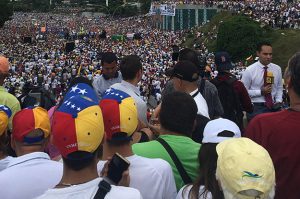
Venezuela’s Million Dollar Question: What Now?
Leer en español At each new turn, Venezuela’s political crisis appears headed for climax. But amid political maneuvering and demonstrations by both the government of President Nicolás Maduro and his opposition, the mood on the ground in Caracas remains one of uncertainty – and determination. Betsimar, a 55-year-old woman from Caracas, was one of the … Read more
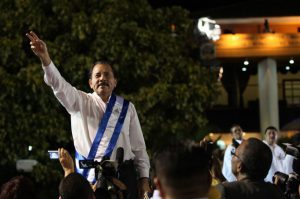
Nicaragua’s New Boss, Same as the Old Boss
It’s election season in Nicaragua, but a visitor to Managua could be forgiven for not noticing. No catchy political jingles blare from car radios, and the only campaign posters and billboards are the same as ever: the pink and baby blue offerings of the ruling Sandinista National Liberation Front (FSLN). Less than a month until … Read more
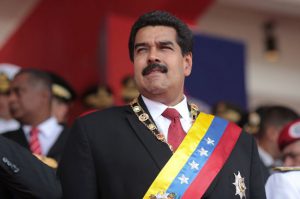
Venezuela’s Odd Transition to Dictatorship
Venezuela proved last week that it can still defy regional trends. By suspending the process to carry out a recall referendum on President Nicolás Maduro, Venezuela became the only country in Latin America since the late 1970s to experience the transition to a full dictatorship. When I started studying Venezuela in the early 1990s, the … Read more
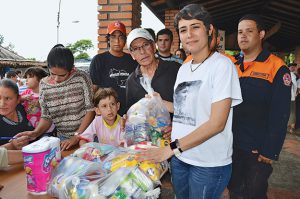
AQ Top 5 Jóvenes Políticos: Patricia de Ceballos
Read in English Patricia de Ceballos podría haber hervido de la rabia después de que su esposo, Daniel Ceballos, el alcalde de la ciudad venezolana de San Cristóbal, fue encarcelado tras una protesta nacional en 2014. Pero decidió no ser, dijo a AQ, “la esposa del prisionero que se queda en la casa y sólo … Read more

AQ Top 5 Jóvenes Políticos: Eduardo Leite
Read in English Cuando Eduardo Leite se lanzó a la alcaldía de la pequeña ciudad de Pelotas en Rio Grande do Sul, el estado más meridional de Brasil, este hijo de profesores universitarios no contaba con una red política apreciable en la cual apoyarse. Así que ¿cómo es que, cuatro años después de su sorpresiva … Read more
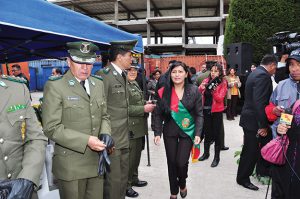
AQ Top 5 Jóvenes Políticos: Soledad Chapetón
Este artículo ha sido actualizado. Read in English Cuando Soledad Chapetón derrotó el año pasado al alcalde de turno para convertirse en la primera alcalde mujer de El Alto, Bolivia, le dio un gran golpe al establecimiento político en lo que muchos consideran la ciudad más influyente de Bolivia. La joven ciudad de más o … Read more
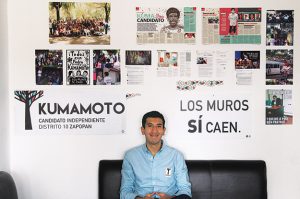
AQ Top 5 Jóvenes Políticos: Pedro Kumamoto
Read in English Con tan sólo 26 años, Pedro Kumamoto le dio la vuelta al libreto de la élite que gobierna México cuando ayudó a liderar una cruzada exitosa en contra de su privilegio más sagrado. En julio, cuando el Congreso del Estado de Jalisco votó a favor de quitarles a todos los funcionarios públicos … Read more
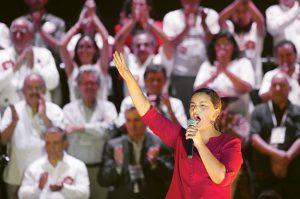
AQ Top 5 Jóvenes Políticos: Verónika Mendoza
Read in English Verónika Mendoza había sido congresista en Perú por menos de un año cuando decidió alejarse del Partido Nacionalista Peruano que estaba entonces en el poder y que ella había ayudado a construir por casi una década. El entonces presidente Ollanta Humala había enviado a la policía a pueblos de los Andes para … Read more
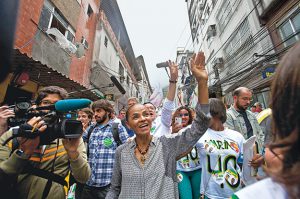
Marina Was Right. Will She Be Brazil’s Next President?
The environmentalist who predicted the crisis is now a contender for 2018. But she has her own challenges to face.
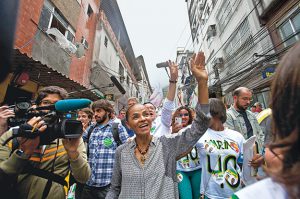
Marina estava certa
Read in English Houve um breve momento durante a campanha presidencial brasileira em 2014 em que Marina Silva parecia destinada a ganhar tudo. Ao escapar notoriamente da pobreza, da malária, intoxicação por mercúrio e outros horrores aos que se expôs crescendo na Amazônia, aprender a ler aos 16 anos, e transformar-se de empregada doméstica em … Read more
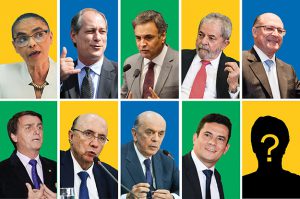
Ciro? Serra? 10 Candidates Who Could Become Brazil’s Next President
This article is adapted from AQ’s most recent issue, “Fixing Brazil.” To receive the print edition at home, subscribe here. Leia em português MARINA SILVA, 58, FORMER ENVIRONMENTAL MINISTER Why she might win: Current frontrunner combines anti-establishment cred with a centrist economic platform. Clear anti-corruption message. Inspiring life story. Can appeal to wealthy, poor and … Read more
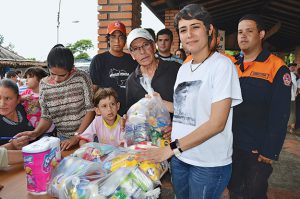
AQ Top 5 Politicians Under 40: Patricia de Ceballos
This article is adapted from AQ’s most recent issue, “Fixing Brazil.” To see the rest of our Top 5, click here. Leer en español Patricia de Ceballos could have simmered in anger after her husband, Daniel Ceballos, the mayor of the Venezuelan city of San Cristóbal, was jailed following nationwide demonstrations in February 2014. But, … Read more

AQ Top 5 Politicians Under 40: Eduardo Leite
This article is adapted from AQ’s most recent issue, “Fixing Brazil.” To see the rest of our Top 5, click here. Leer en español When Eduardo Leite ran for mayor of the small city of Pelotas in Brazil’s southernmost state of Rio Grande do Sul, the son of university professors did not have much of a … Read more
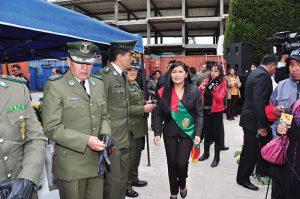
AQ Top 5 Politicians Under 40: Soledad Chapetón
The first female mayor of El Alto is as multifaceted and dynamic as the city she serves.
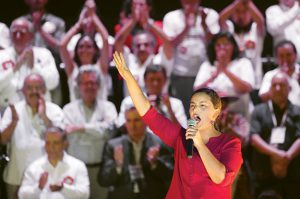
AQ Top 5 Politicians Under 40: Verónika Mendoza
The former presidential candidate stoking hopes that a modern, more electable left may be taking root in Peru.


